
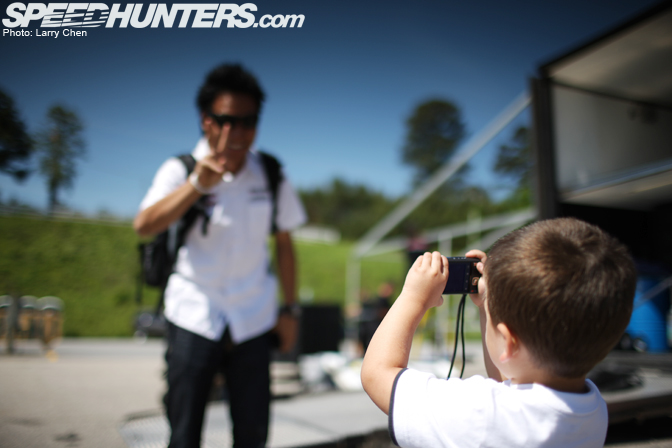
In the past few years, we've seen digital cameras become better and better. The price for cameras has dropped to very affordable levels. Because those things the digital photography movement has exploded across the globe. Everywhere you go now, you see folks armed with digital SLRs. It's almost impossible enjoy a weekend being a tourist without spotting dads, moms, cousins and distant uncles carrying gigantic digital light capture devices. You can spot them at the park, the local shopping mall, popular tourist destinations, far-off hiking trails, and of course, the race track.
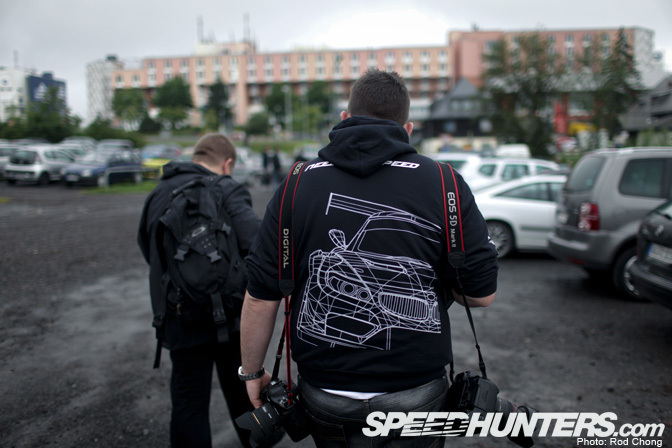
The rise of the automotive world on the internet, in recent years, has created a demand for instant content generation and the DSLR was on the forefront (and still is!) of that content creation war. Because the subject of digital photography is so big now, we decided to sit down with a few of our fellow Speedhunters photographers, Larry, Will Roegge, and myself to talk about our thoughts on this very subject.
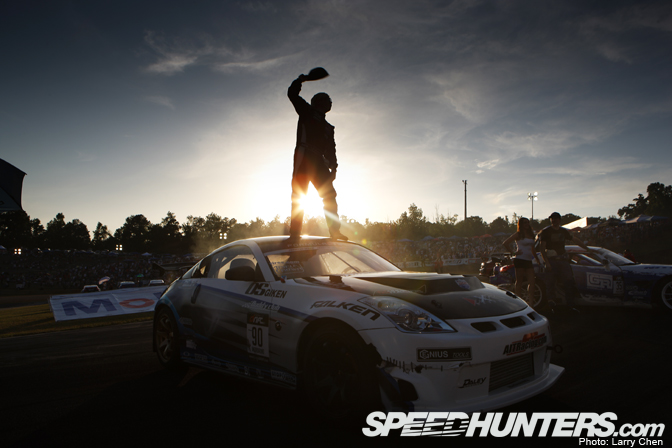
We're also joined by the Formula Drift staff photographer, Jose Martinez, and Stanceworks' own Michael Burroughs.
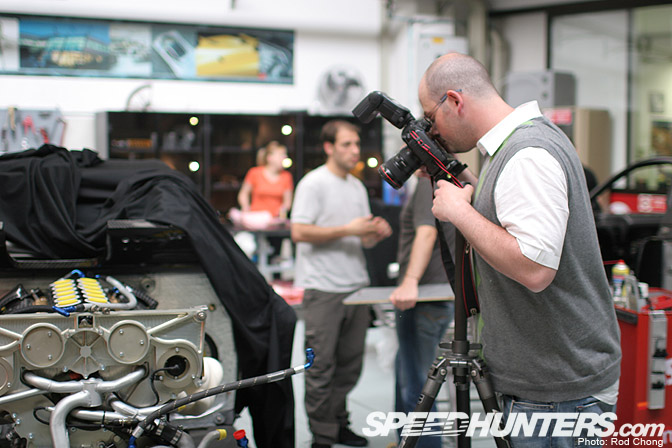
Photography in general has come a long way from its very humble roots in film. How far digital photography has progressed?
Linhbergh: More than a decade ago, I was more than timid to get into photography because of its dependant use of film. But because of its advances into the digital realm, that has made it possible for those that want to dip into the waters of photography –like myself. That in itself is the biggest progression since photography's inital inception in the 1800s.
Digital photography has progressed so far that I am now seeing dads rock professional bodied cameras (like the Canon 1Ds or the Nikon D3) with long white lenses at shopping malls. Can't miss that shot of their kid getting their face all dirty from melting ice cream!
Will Roegge: Digital photography has progressed immensely in the past decade! For example, my first DSLR was 6.3 megapixels – today my cell phone's camera has more megapixels. Camera hardware, computer hardware, photography software, and online photo sharing, have all become more affordable and accessible. Whether someone realizes it or not, sharing a photo on a social network that was taken on a digital camera – completes a photography cycle that was unavailable to the average consumer 15 years ago. I still remember watching my grandparent's Kodak slide carousel projector at Christmas time with my family. That was their photography cycle, that was the extent of the shared image – prints or slides. Hardly instantaneous or cost effective.
Larry Chen: I started with film at a young age and it was great to be able to experience the transition first hand from film to digital. I am very grateful that I can be a part of the beginning of the digital revolution. It has allowed photographers like Linhbergh and I to find our true calling. I feel like digital photography will only get better and the quality of photos produced from the newest cameras will be much higher.
Jose Martinez: I’m amazed how far digital has come and how much we take for granted these days. Just being able to review images right after you take them is a milestone compared to shooting with film. Being able to correct your mistakes and adapt to changing conditions makes everything so easy. Looking back at film photos from racing, to journalist, wild life, etc we wouldn’t be able to capture our moments like we do on a daily basis.
Things that we take for granted: LCD Screen, ISO, image capacity (instead of film rolls), Megapixels, etc.
Michael Burroughs: Digital photography has obviously come a long way in its recent years. I believe most would consider film to be almost obsolete at this point outside of its artistic and trade value. I don't think film will ever die out, but it is without question hard to argue the stability of the digital industry today. Personally, I've spent countless hours in the darkroom, but still prefer the control and instant gratification l I have with a digital image. Just in the past 3-4 years, when I began shooting, cameras have progressed an unbelievable amount. When I bought my Nikon D300 I thought the high ISO noise capabilities were astounding. Now, just a few years later, I feel like it's laughable.
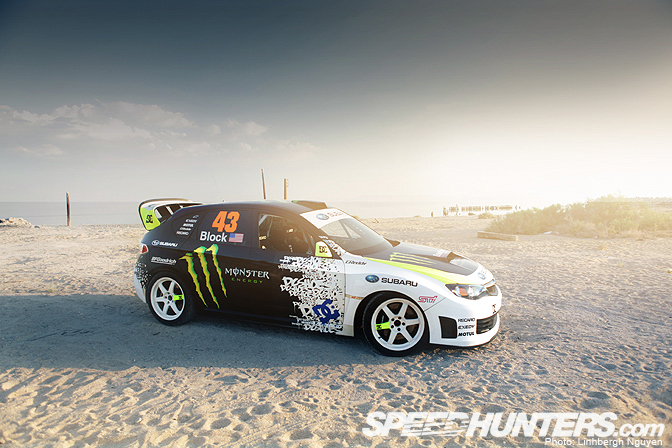
What're your thoughts on the use of post-processing?
Linhbergh: Post processing has definitely come a long way from its, actual, dodge and burn roots. And next to the affordability of photography gear, Adobe Photoshop has become the single biggest contributor to making photography more accessible to everyone. Photoshop, or in more general terms, digital post-processing, can easily make a bad photo into a something worthwhile if it is in the right hands. The knowledge of that creative power instills confidence in the photographer and eventually that confidence will sink into their photography.
On the negative side, the existence of Photoshop and other image manipulation tools have created a general distrust among the digital populous of the internet. If there's an extremely photograph of something almost unbelievable, its realness is questioned by the ever-so-haunting phrase, "MUST BE A PHOTOSHOP."
Post-processing, like digital special effects in Hollywood blockbuster films, if done right, is an asset to any photographer to help tell their photographic story a bit better. It'll always be a tool in the tool box of photography, not an end-all-be-all solution.
Will: My thought on post processing is everything in moderation. The first time I ever went skimboarding, I was hooked, it was challenging and I was addicted to getting that one "perfect" ride. Over time, that one ride evolved much like my taste in post processing. Just because you can do something, doesn't mean that you should. I could spend days catching every ripple in the ocean on a skimboard – would it be rewarding? No! Photo treatment is the same way. Just because you have the tools to make every image look like the movie "Traffic" or desaturate the colors and lower the contrast to match your favorite print advertisement – doesn't mean you should. Wave selection is everything on a skimboard. Knowing how to post process is the same way. Understanding why something works to a viewer and how to get the most out of your images – will make each ride more enjoyable. The only way to learn that is through: criticism, feedback, trial, and error. Photography is a form of communication and when you send a message – prepare for a response.
Larry: It has been the secret of great photographers for years. Even Ansel Adams used the MS paint program in Windows 95 to touch up his photos.
Jose: I believe that as the DSLR world continues to be more affordable, post processing is going to be the “one” of the key to stand off from the crowd.
Yes, you have the latest gadget in your hands and yes, you are shooting with the “right/correct” settings, but how can you correct any mistakes? Can you take your images to the next level and separate yourself from the crowd? That’s the “key.”
Burroughs: Post processing is an integral part of the photographic process. It's the digital representation of the darkroom procedure. Of course one can take it so much further and beyond, but it's all in what the photographer wants to accomplish. I think there comes a point when photoshop work on an photo just becomes "digital image making" because there's so little involved with the use of a camera to get the initial image, but I suppose I'm picky sometimes. As Linh says, it's an essential tool, but shouldn't be a crutch
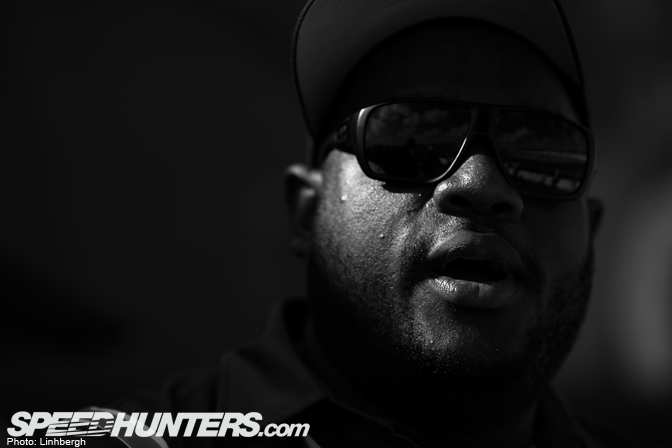
What's cool right now in photography and what do you see as a fad?
Linhbergh: I'll tell you what's uncool right now, following whatever everyone else does. If there's one thing I've learned in my few years as a photographer is that if you take the extra effort to look around more carefully and see what others are not seeing, it's a great jump start to photography.
Will: Fads in photography are similar to any other trend in music, fashion, or design – cyclical. The message and feeling that comes from a great image is very personal – usually the treatment or technique helps to strengthen it. I'm into self processing black and white 35mm negative, scanning it, and digitally processing it. To me it has an awesome look and lots of character. As I get older I appreciate forethought and execution – because my early successes were products of naive experimentation and superficiality. Photographs are simple to take, translating a feeling into a visual representation is an understanding of what it is to be human.
Larry: The antique look digital hipster rangefinder cam is very in right now. I think shooting at slow shutter speeds is a fad. There is nothing more awesome than a car frozen in time at 1/8000 of a second!
Jose: Being creative. Thinking outside the box. See things from a different angle. Push yourself to try new things. Capture the moment. Black & White is never out of style. Soft tones (film look).
Burroughs: Post processing techniques are constantly coming in and out of style, the most recent to get plastered into every photo and overused is the lens flare. Of course, I might have to say I am guilty as well. I think when people see something obvious and it's something they can replicate, it's going to be done. It's just part of the game and it's something that contributes to each photographer's individual style. I know I wouldn't have my own twist on pictures if it wasn't for ever photographer I admire and have "borrowed" from.
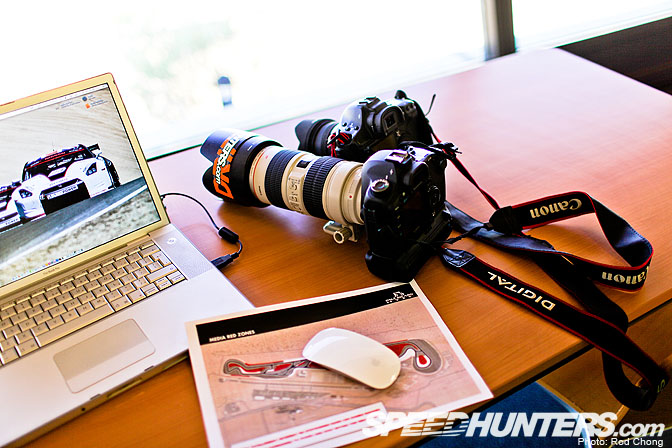
With the affordability of almost all photography gear, what're your thoughts about photographers vying for the best and most expensive gear. Does having the best gear make you a better photographer?
Linhbergh: To me, gear never makes a photographer. The photographer makes the photographer. Having the best lens and the best camera body will create a technically solid image, with the right amount of knowledge, but will fall empty on trying to create a compelling image. What creates a compelling image is all up to the photographer and how they see the world –ideas that are almost impossible to teach. It takes someone who can recognize a moment and immediately react to it by hitting the shutter.
I've said it time and time again, photography equipment is like a paint brush –it's just a tool. It takes someone with a strong vision to take the paint brush and use it to make a painting.
Will: More gear makes a slow photographer. Faster gear makes a careless photographer. Less gear makes a more creative photographer. Slower gear makes a more deliberate photographer. Better gear won't make your images mean anything more. Camera gear is still very expensive. Even an entry level setup can cost close to a thousand dollars.
Larry: What people don't understand is the longer your focal length the better your photos will come out. You have less of the frame to compose, therefore it is harder to mess up!
Jose: Never. It amaze me when I see amateur photographs, what they are able to capture with their “rebels” and kit lens. Being at the right place, at the right time, regardless of what you have in your hands… that’s what makes the photograph!
Burroughs: It's a tough thing to decide one way or another. For someone getting in to photography, it makes no sense for them to go all-out and buy top notch gear if they don't stick with it. On the flip side, if you knew ahead of time that you're in it for the long haul, there's no point in wasting money on the lower end stuff if you're gonna wind up at the top anyway. I think having good glass is exponentially more important than having a good body, but in the end, it comes down to knowing how to use the equipment effectively, as well as having the eye. The gear is to be used as a tool, not a crutch. I can't count the number of people I know who have tens of thousands in equipment and are relatively unsuccessful in capturing images… Personally, I've got one body and 3 lenses, and frankly I could be content with nothing more.
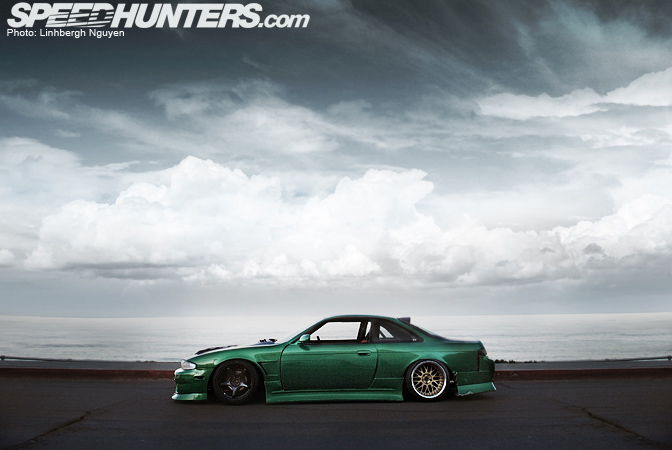
What's your opinions on things like HDR and rig shots?
Linhbergh: There's a time and a place for HDR and like many other things in photography, it shouldn't be used all the time. What makes a good story is always a variety of photographs; shots which are taken at different focal lengths, shutter speeds, apertures angles and lighting conditions. It becomes boring look at a set of photos that pretty much look exactly the same –especially if they're in the neon HDR camp.
My thoughts on rig shots is the same as the use of HDR. Use it for variance in shots but don't let either of those things become a crutch. Master all of photography, not just one aspect.
Will: HDR is neat, but after I look at a few images I start to get a headache, maybe some details are best left in underexposed shadows. :p
Rig shots are cool, I like techniques that focus the eye intentionally to specific sharp areas. Rig shots make the backgrounds less important in sharpness and call attention to the subject – the car. I think using them in moderation, for example one shot in a set of images shows depth to a photographer's skills.
Larry: HDR is a way of life. Photos taken in this day in age should have everything exposed perfectly from corner to corner. Is a rig shot when you hang a carrot in front of a donkey to make it go faster?
Jose: HDR = Rubbish! Photographers should be fined for each HDR images taken. Jail time? Plausible. Rig shots are still cool but it all depends on the subject, location and camera position.
Burroughs: HDR can be nice when used effectively but I feel it almost never is. Proper RAW editing can get you close enough in most cases I feel like… I hate the HDR rainbow ridiculousness so many people abuse. Rig shots are an entirely different ball game though. Good stuff. I'm often amazed at what people are able to capture, and even more so, amazed they can edit their rigs out successfully. I love the fact that it gets people out there working on truly dynamic images, and I love the side of the pictures we rarely get to see: the fact that pretty much every rig is home built and one of a kind.
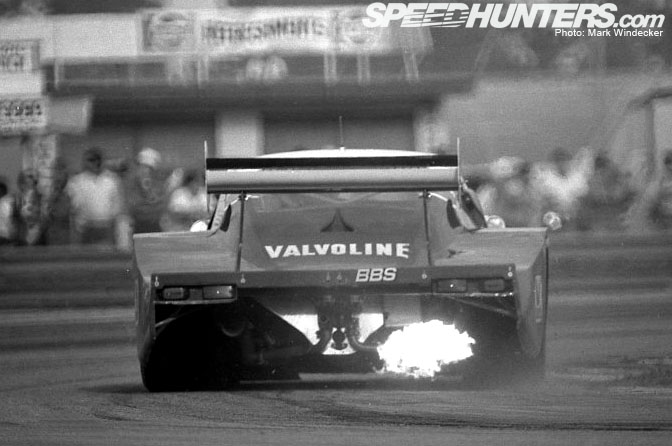
We live in a time where many people are looking back at the years past to gain inspiration and what came with that was the resurgence for the use of film in photography. What're your thoughts on this nostalgic photography movement?
Linhbergh: I completely support this movement to use film. With the right dedication to the discipline, it'll make a real photographer out of anyone. Film is completely unforgiving as each shot is a slightly emptier pocketbook. It forces you to not mess up and to produce a ratio of useable images to unusable to the ratio of almost nil. This learned skill of shooting images that are actually usable translate well into the realm of digital photography and also into a professional career. What client wants to wade through thousands of images only to find 10 useable ones?
There's one thing that film photos will have over digital photos, it has warmth.
Will: People like to proclaim things as being over and dead. Maybe as a way to move on, however film is not one of those things. I still miss the smell of developer, stop bath (especially), and fixer. Most importantly, I miss the latent image of a print appearing with each agitation of the developer tray. There is something magical about photographic emulsion. If you haven't experienced it for yourself I urge you to give it a try!
Larry: Here is the easiest way to shoot nostalgic black and while photos on your top of the line COLOR DSLR camera.
1. Take some well composed color photos.
2. Go to a yard-sale or garage sale and find a monochrome TV. Buy it.
3. Use the monochrome TV as a monitor for your computer.
4. Take photos of your well composed color photos displayed on the monocrome television.
5. Enjoy your true monochrome photos.
Jose: I always look back at B&W images in my family album. My late grandfather was a portrait photographer and I can’t tell you how amazing those images are. Subject position, location and light levels are on point. Each detail taking into account just for a single image.
Imagine knowing that you only have 36 exposure and you have to make each one of them count. Wait for the moment and “click”.
Burroughs: As said I think film is great, and I've spent quite some time with it. I love the look and feel, and it's definitely something you don't get with the digital medium. I wish I had more patience because I'd shoot with film a lot more than I do now. With that said, I feel that some people use the "film" aesthetic as some type of excuse to produce poor work… in my opinion of course.
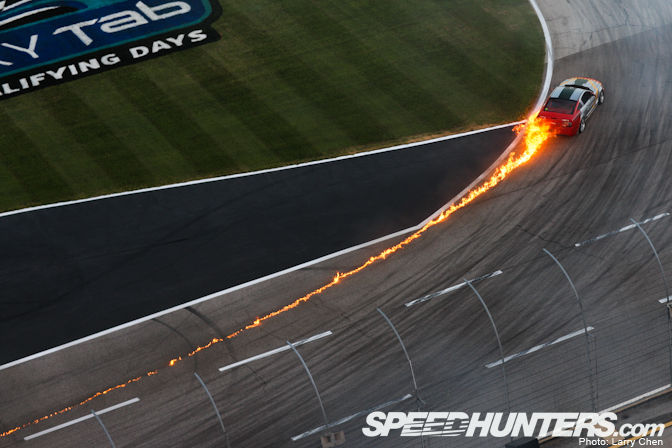
What're the most common mistakes amateur photographers make?
Linhbergh: To me, the most common mistake is putting all of their trust into their gear than rather themselves. Stop being a gear whore and start becoming a photographer!
Will: The most common mistake anyone makes is listening to non-constructive criticism. The work that will matter the most to you – is entirely up to you. You are going to turn the shutter dial the wrong way and over expose a few shots before it becomes automated and reflex.
Larry: I see quite a few up and coming photographers forgetting to watermark their photos with their name, age, sex, address, mothers maiden name, blood type and phone number.
Jose: Shooting with flash. If you still haven’t mastered the camera, don’t mess with lighting. It’s a whole new ball game. Don’t be afraid to shoot something new. Practice makes perfect.
Burroughs: Over processing. Gets 'em every time. No question.
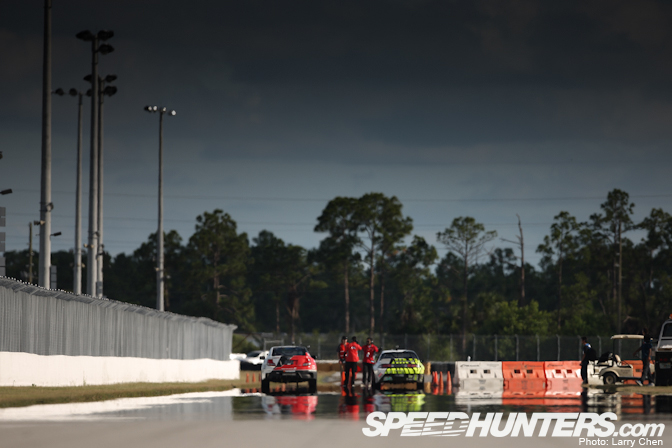
What do you think is on the horizon for digital photography?
Linhbergh: I believe the initial explosion in digital photography will soon reach its apex. Those that have gotten into it as a hobby will soon switch to smaller, not as professional, cameras, and those that take it seriously will get even more serious. The gap between the two will widen considerably.
As of right now, everyone wants to be a photographer. It's fun and these new fangled DSLRS create amazing imagery without that much knowledge of actual photography techniques. Since I believe the gap between hobbyist and professional will, in the near future, widen considerably, the gap between the two markets of cameras will also. So, next on the horizon for digital photography? Not everyone will be a photographer. That includes you, Uncle Joe.
Will: The horizon for digital photography is improved camera hardware, software to process images, and devices to consume photography. Sounds like ten year ago. The speed of everything will increase in the future – faster writing and reading of images. More depth in terms of resolution. Pus smaller and higher quality non-DSLR cameras, which are already on the market. I would like a cell phone camera that takes RAW images, has small inner-changable lenses, and have the ability to edit the RAW file right on my phone – ready for upload to Speedhunters, my blog, or to use as storyboards. Holographic images might end some of the bokeh fetishism.
Larry: The horizon is getting more and more vertical. Pretty soon all photos will have so much "JDM" tilt-angle that photos will have a perfectly level horizon once again.
Jose: If you look at Canon & Nikon flagship camera, they are focusing on image quality; megapixels count and noise level at a high ISO. I think we are able to capture moments in remote location with difficult lighting/conditions with the available gear. Let's not forget HD video with the current DSLRs.
Burroughs: That's a tough one. To be totally honest, I have no idea. I think cameras will progress in terms of capabilities. We'll see better and better resolutions and ISO speeds with noise control. But I suppose that's a given. In terms of the scene, perhaps we'll see a few people jump over into medium/large format digital cameras?
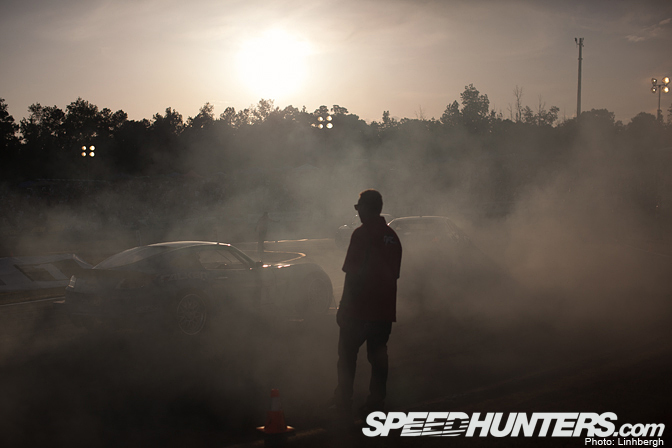
Let's close off with this: what's the number one advice you'd give to someone that is just starting photography?
Linhbergh: Just get out there and shoot and never stop shooting. Stop thinking, stop aspiring and start doing.
Will: Learning how to write takes time, so does learning how to use a camera. Patience, practice, and if metaphorically speaking – if you stay hungry, you will always enjoy a meal.
Learning how to write with a utensil takes time.
Larry: Skip photography and go straight to HDSLR video. The rigs look way cooler!
Jose: 1st, buy the 50mm f/1.8 (whether is Canon or Nikon, that lens is worth 10x the listed price). 2nd, shoot, shoot and keep shooting. 3rd, off camera flash “if money ain’t a thing!” 4th, buy a tripod and go shooting at night! You will be amazed.
Burroughs: Shoot. Non stop. It's the only way to get better. Look at people's work and absorb everything you can. Take time and visualize the shot you want in your head. When I got started, I took hundreds of photos every time I went out. Over time I realized, for me, I was more successful when I knew relatively what I wanted when I set out to take photos. I won't say that's the right way to do it for everyone, but that may help some people. I suppose it sounds pretty obvious, but you never know. Quality over quantity.






Great work guys.
Great discussion guys!
It is cool to read your thoughts on shooting and how you approach your work. I love photography just as much and I am improving with small steps and it feels awesome. No where near your quality yet but who knows maybe some day....
Maybe a cool idea for Speedhunters; you learn by trial & error and by constructive criticism. Why not make a post where readers can submit their images and the guys from the discussion give their feedback. This could be very inspiring.
inspiring words from all of you
Great read, these type articles always get me excited to go out and shoot!
but i love to overprocess photos
awesome article, some nice points touched on. You guys inspire all of us. So keep up the good work.
excellente article, just like me, when i started into automotive photography, i never stoped shooting, 2 years ago, and at that time i wouldnt believe the work i'm doing right now, and every photo I see from you is stunning value for me, thanks for creating awesome shoots
grettings from chile
I always love these pieces. Inspirational, and makes me feel like I don't shoot enough as it is.
Larry is hilarious btw. Nice way to add some humor into the post.
I need one of the NFST sweatshirts...
having the latest gear is sooo overrated (unless you shoot F1 for a living) ... but for somebody like me.. in 2008 I got a 6.3megapixel body with 24~70mm lens from my boss to shoot some Radio Controlled racing action.

I was very happy with the shots i made with it... last year i tried a semi prof. set-up.. but i never got happy with it... maybe it was to fast (it was just a try out for 5min... if i could use it for a day..i could get used to it)
besides, once you learn how to take great shots... you never forget it!
Sweet article with some good advice for me
great. just great.
love Larry's answers
The first photo in the article shot by Mr Larry Chen is perfect.
Good discussion guys, I agree with the notion that gear isn't everything, I use a Nikon D70 (not even a D70 's' model), it only has 6.1 megapixels and has needed repairs twice, but when I used a current Canon Eos 5D, and compared the shots from the two I realised that it doesn't matter how many megapixels you have and how big your image ends up being, it's your own skill that makes the shot.
I've only just, literally just now started motorsport photography, I started with the 24hrs of Le Mans and despite the constant annoyance of the fences I came away with a generous load excellent shots which haven't attracted a single bit of negative critism. With these new cameras some photographers just take a really big shot and just crop out a part which they like taking advantage of the quality of the shot, now some may consider this normal practice, but I consider it cheating. You should not need the top SLRs that cost £3000-10,000 or buy that big honking telephoto lense that costs £1,000-8,000, if you really have the skill you won't need those and you may not even need a tripod.
Important tip for fellow upstarts: DO NOT and I mean DO NOT use the preset settings, do it all manually.
Great article! Will- Being both a striving photographer/videographer and a big skimboarding fan myself, your metaphor with post production was dead on. The disappointing feeling I get with grabbing a bunch of short, lame skims is the same feeling I get when I look back at a session of images after I finish editing them and think to myself, I tried too hard. It's that sucky feeling when you realize you're trying to make good photos out of mediocre photos by relying on PS. Great write up and collection of experience!
This why speedhunters is best. Very good read.
very interesting article. I am in the process of becoming professional photographer and I watch your work every day... you are awesome guy. I agree with you for the 35mm stuff and I'm going to put a new roll in my old asahi pentax spotmatic and go shooting right now. So, have a good day and don't stop your good work.
Amazing Read!
Great stuff, guys. Speedhunters is the reason I started photography. Although, my teacher never understood Cars + Photography. =P
No word on that new Lytro camera technology?
Now this is the BEST feature I have EVER read on SpeedHunters,, , Mike Burroughs' photography is why I bought a DSLR ... . The only way this article would have been better is to have Dylan Leff explain how he mastered the art of light painting
Great discussion! Fun read even though I left photography to write lol
Larry's answers was just so funny! LOL, especially on the carrot hanging in front of a donkey to make it run faster. Classic!
TLDR.
Nice pics though
another great post about photography. seems like everyone you do is better than the last. keep 'em coming.
oooo that pic of Ken's scooby....!
Good read!
Great article, awesome words and opinions, also the advices are great for all of us. Thanks for share it.
Where can I get one of those NFS BMW hoodies from?!?!
Excellent post, nice to be able to hear the thoughts of those who inspire you and learn something from people whose work you admire.
excellent.. as an amateur its always good to hear what the pro's are doing, thinking and working with.
Great discussion!!! it gives me some advice as beginner photographer!
excellent points too. I have learn a lot.
Thanks!
Where can I get one of those NFS BMW hoodies from?!?!....I want too :))
One XL size....:)
I agree with Jose. HDR users should be shot.
Amen!
One question for the group ...
As a beginner i learn a lot from exif data..
but there are many pro photographers remove exif data from the image
now after sometimes i studying, i notice some pro even put in false data in exif...
why they need to put in false data in exif anyway... ? i am curious
Based on photo we can roughly tell the focal length, where is the light source, where is auxilary light, is it soft or hard light, etc etc.. so if a photo is taken with wide angle lens.. why would someone change it to 500mm.. i am curious
20D and 50D. nuff said.
Very nice write up! I found this inspiring as I am a photographer in practice.
Hey, Jose, don't hate on the Rebels and the kit lens. I myself caught a lot of good shots with that combo in high school.